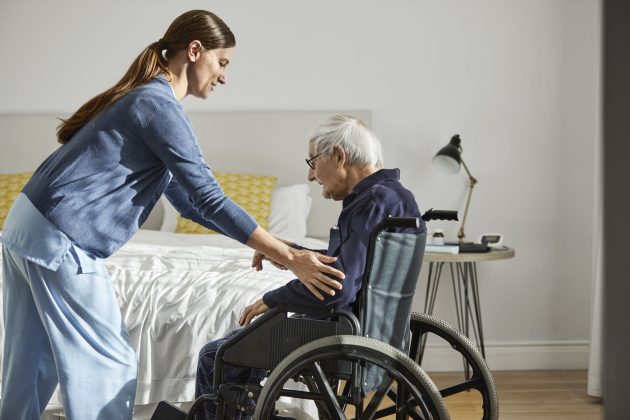In the healthcare industry, the traditional categorization of caregivers as "skilled" or "unskilled" fails to acknowledge the depth of expertise and complexity involved in providing home care. As healthcare leaders, it’s important we identify and recognize caregivers for the skilled nature of their work. We must explore the importance of reevaluating caregiver labels and highlight the need for a more accurate and inclusive portrayal of their contributions.
Ways to challenge the 'unskilled' label: The term "unskilled’, often used to describe certain caregiver roles, undermines the knowledge, expertise, and dedication they bring to the work. This work requires a diverse set of skills, including hands-on assistance with daily activities, observation, safe client maneuvering, effective communication, emotional management, and flexibility. By challenging the use of the "unskilled" label, we can ensure that the true depth of skills possessed by caregivers is acknowledged and valued.
Here are a few ways:
- Measure caregiver impact: The influence brought by caregivers goes beyond the individuals they care for, as it positively affects their families and communities. However, the outcomes generated by home care often go unaccounted for and aren’t attributed to individual caregivers due to the collaborative and customized nature of care delivery. It is crucial to evaluate the positive impact that caregivers have on the members and families they serve. For example, caregivers can play a tremendous role in helping members independently achieve activities of daily living. As leaders, it’s imperative to acknowledge this achievement and celebrate the wins.
- Increase public awareness: Home care work often takes place in private spaces, making it invisible to the public eye. This lack of visibility can contribute to the undervaluation of caregivers' skills. By raising public awareness about the complexities and expertise involved in home care work, we can challenge misconceptions and foster a greater appreciation and respect for the contributions of caregivers. As healthcare leaders, we can increase public awareness within the workplace by fostering an environment that celebrates caregivers’ contributions and acknowledges their expertise. Leaders can host round table discussions on supporting correct caregiver language and terminology; organizations can implement internal and external communications that incorporate inclusive language that shifts societal perceptions of caregivers.
- Recognize the emotional and physical demands: The role of a caregiver can place significant burdens on both the emotional and physical well-being of an individual. These challenges can have a significant impact on the caregiver's overall well-being. Recognizing the toll of this work and the demand that it has on those performing it can showcase the incredible endurance one must face in this position. By recognizing the high demands of a caregiver’s role, more empathy and value can be given to the profession.
Shifting the narrative for good: Overall, the healthcare industry must revisit how we identify caregivers and move beyond the "skilled" vs. "unskilled" mentality. We must recognize the depth of expertise and complexity involved in this line of work, reveal the impact that it has on overall health, and educate others on the demand this role entails. Together, we can create a more accurate and inclusive portrayal of caregivers' skills and contributions. Let’s acknowledge and appreciate the skilled nature of caregivers, ensuring that they receive the recognition and respect they deserve.
Sources:
